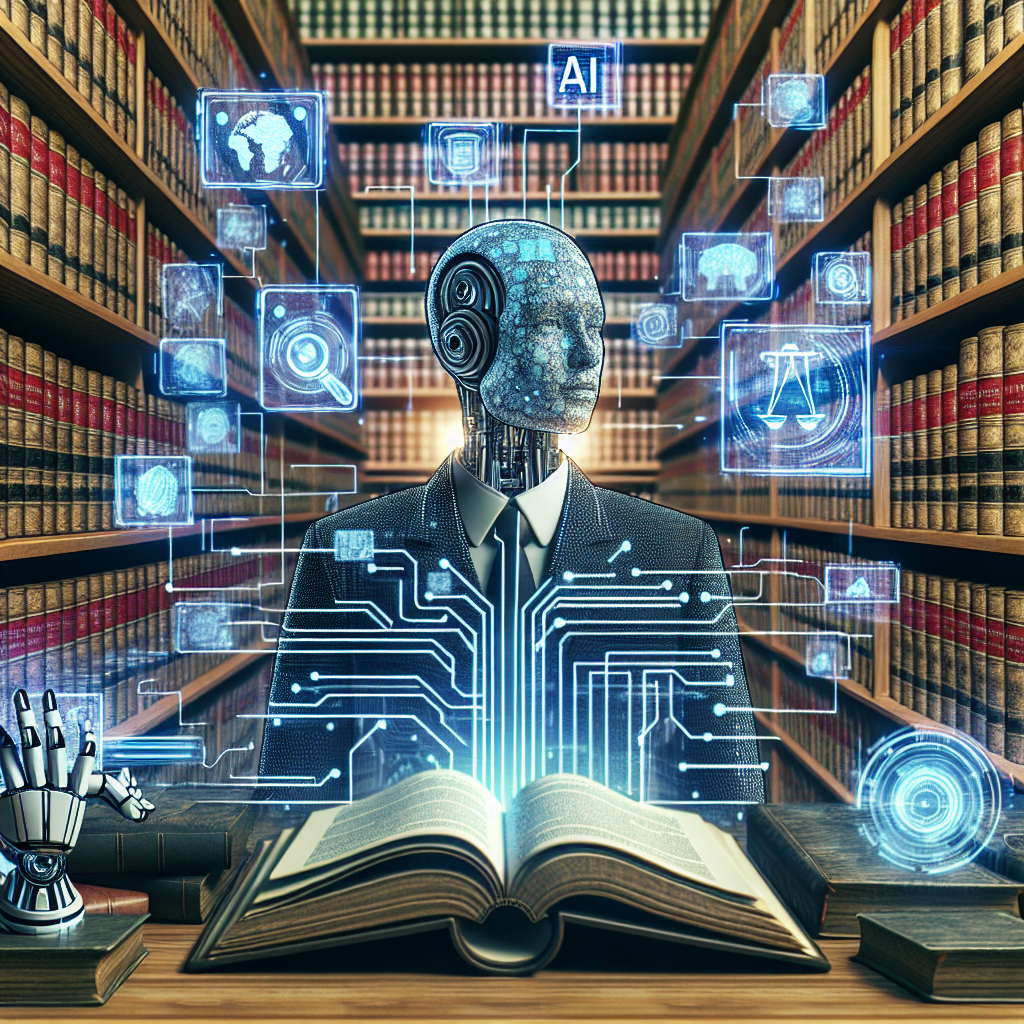Artificial Intelligence (AI) is transforming industries across the board, and the legal industry is no exception. With advancements in machine learning, natural language processing, and other AI technologies, legal professionals are able to streamline processes, improve efficiency, and provide more accurate and timely advice to their clients. In this article, we will explore how AI is revolutionizing the legal industry and the potential implications for the future.
How AI is Revolutionizing the Legal Industry
1. Document Review and Due Diligence: One of the most time-consuming tasks in the legal industry is reviewing and analyzing documents for due diligence purposes. AI-powered tools can now quickly sift through vast amounts of data to identify relevant information, saving lawyers countless hours of manual work. These tools can also spot inconsistencies, errors, and potential risks that may have been missed by human eyes.
2. Legal Research: Legal research is another area where AI is making a significant impact. AI-powered search engines can quickly scan through thousands of documents, cases, and statutes to find relevant information for a specific case or issue. These tools can provide lawyers with insights and precedents that can help them build stronger arguments and make more informed decisions.
3. Predictive Analytics: AI can also be used to analyze data and predict outcomes in legal cases. By analyzing past case law, judges’ decisions, and other relevant data points, AI algorithms can provide lawyers with insights into the likely outcome of a case. This can help lawyers better strategize and advise their clients on the best course of action.
4. Contract Analysis: Contract analysis is another area where AI is revolutionizing the legal industry. AI-powered tools can quickly review and analyze contracts to identify key terms, potential risks, and inconsistencies. This can help lawyers draft better contracts, negotiate more effectively, and ensure compliance with legal requirements.
5. Virtual Assistants: AI-powered virtual assistants are becoming increasingly popular in the legal industry. These virtual assistants can help lawyers manage their schedules, organize documents, and even provide basic legal advice to clients. By automating routine tasks, virtual assistants can free up lawyers’ time to focus on more complex and strategic legal work.
6. Compliance and Regulatory Issues: AI can also help companies stay compliant with ever-changing regulations and laws. By analyzing vast amounts of data, AI algorithms can identify potential compliance risks and provide recommendations on how to mitigate them. This can help companies avoid costly fines and legal disputes.
7. Client Services: AI-powered chatbots are increasingly being used by law firms to provide better customer service to clients. These chatbots can answer common legal questions, schedule appointments, and provide updates on case status. By automating these routine tasks, law firms can improve client satisfaction and free up lawyers’ time to focus on more high-value work.
8. Litigation Support: AI is also revolutionizing the way litigation support services are provided. AI-powered tools can analyze evidence, predict case outcomes, and even help lawyers prepare for trial. This can help lawyers build stronger cases, make better decisions, and ultimately achieve better outcomes for their clients.
FAQs
Q: Will AI replace human lawyers?
A: While AI is transforming the legal industry, it is unlikely to replace human lawyers entirely. AI can automate routine tasks and provide valuable insights, but human lawyers are still needed for complex legal analysis, strategic decision-making, and client advocacy.
Q: Is AI ethical in the legal industry?
A: Ethical considerations are important when using AI in the legal industry. It is crucial to ensure that AI algorithms are transparent, unbiased, and comply with legal and ethical standards. Lawyers should also use their judgment to validate AI-generated insights and recommendations.
Q: How can law firms adopt AI technologies?
A: Law firms can adopt AI technologies by partnering with AI vendors, investing in AI training for their staff, and integrating AI tools into their existing workflows. It is important for law firms to carefully evaluate AI solutions to ensure they meet their specific needs and requirements.
Q: What are the potential risks of using AI in the legal industry?
A: Some potential risks of using AI in the legal industry include data security and privacy concerns, bias in AI algorithms, and job displacement for legal professionals. It is important for law firms to address these risks proactively and implement safeguards to protect against them.
In conclusion, AI is revolutionizing the legal industry by streamlining processes, improving efficiency, and providing more accurate and timely advice to clients. By leveraging AI technologies, law firms can enhance their services, reduce costs, and stay competitive in an increasingly digital world. While AI is not a replacement for human lawyers, it is a powerful tool that can help legal professionals work smarter and deliver better outcomes for their clients.

